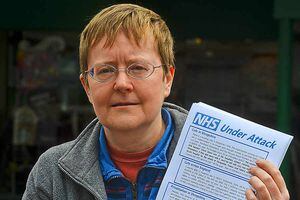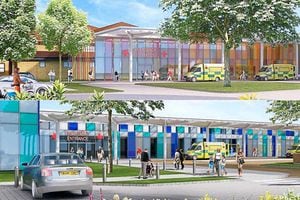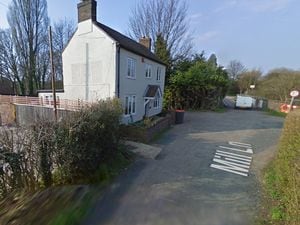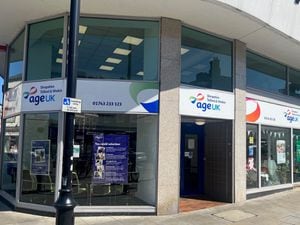Shropshire A&E closure: Longer hospital travel time will not lead to more deaths, says medic
Longer travel times to hospital will not lead to more deaths, one of the county's top medics insisted today.

Dr Edwin Borman, medical director of Shrewsbury and Telford Hospital NHS Trust, said time is not as important as ensuring people receive the right care.
He is the latest top medic to be put forward by the trust to speak in favour of outline plans for a single A&E site in Shropshire, supported by urgent care centres around the county.
The review, called Future Fit, has come under fire from campaigners who claim that people living in Powys and south Shropshire will face travel times of more than an hour to get to A&E, particularly if the sole emergency centre is chosen to be put at Telford's Princess Royal Hospital.
As yet it has not been decided whether the single centre will be at Telford or the Royal Shrewsbury Hospital.

Speed matters, a group fighting the closure of one of Shropshire's A&E departments said today.
They said senior doctors at the hospital trust are being "disingenuous" in their claims travel times to hospital will not have an effect on mortality.
Gill George, chairman of the Shropshire Defend our NHS group, said that although some conditions do benefit from specialist care, other patients will need to be able to get to hospitals quickly.
She said: "For some cases, Edwin Borman is correct. Some form of heart attacks show clinical evidence that specialist care saves lives – but for strokes, speed over specialist care saves life.
"Shropshire Defend our NHS is not against specialist care but that does not mean that long delays should be necessary and will eventually put lives at risk."
Ms George said the Royal College of Emergency Medicine agreed with the claims and that Newark in Nottinghamshire has had 50 extra fatalities since its A&E was closed.
She said: "A&E closures have a knock on effect on neighbouring A&Es. They are being deliberately selective as the leaders of Future Fit have been deliberately selective in their use of evidence. They are being disingenuous."
A strategic outline case has been put together for the future of the hospitals, which proposes one single fully-staffed emergency centre either at RSH or PRH.
The Save the NHS group claims patients will die because they will have further to travel to reach A&E.
Dr Borman today said the chosen location will have no impact on the care patients receive and that it is more important that patients get the right care in the right place at the right time.
He said: "One of the most common concerns we hear when we talk about the future of local health services is the time it takes patients to get from their homes to one of our hospitals. The fear is that anything we do that leads to increased travel times will put patients' lives at risk.
"I completely understand this concern, but much of it comes from a misconception that the journey time is the be all and end all when a journey to hospital is necessary.
"While it is important to get patients to hospital quickly, what actually is more important is that our patients are seen in the right place, by the right person as soon as possible.
"It's all very well getting the victim of a heart attack, for example, to hospital in 20 minutes, but if the medical team and equipment needed to treat that patient aren't available, does it not make more sense to travel a little longer and still be seen sooner by experts in a specialist unit?"

Dr Borman said there has only been one study that supports the belief that a longer travel to hospital increases the risk of death.
He said: "In complete contrast, there is substantial evidence that shows that treatment at the right time, in the right place, by the right person can be most safely and effectively provided without requiring that quickest, or nearest, is always best.
"It's important to remember that anyone living in Shropshire, Telford & Wrekin and Mid Wales already has to travel out of the area to regionally specialist units for the most severe emergencies – Wolverhampton following a heart attack, Stoke following a major car crash or Birmingham for a critically ill child.
"It is absolutely right that complex treatments and services should be provided in regional specialist centres that bring together all the right people and technology because the outcomes are so much better for patients."





